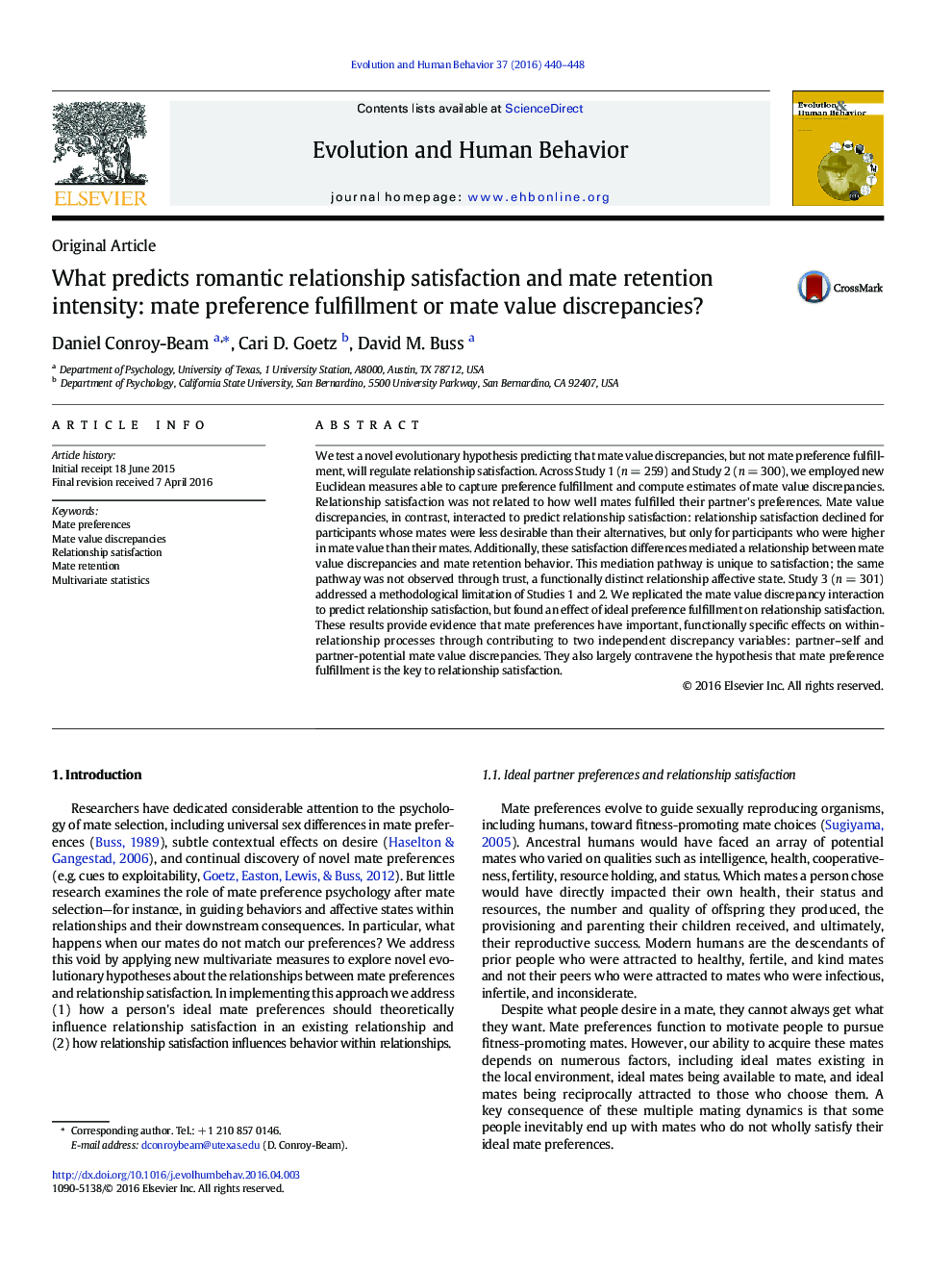| Article ID | Journal | Published Year | Pages | File Type |
|---|---|---|---|---|
| 5044886 | Evolution and Human Behavior | 2016 | 9 Pages |
We test a novel evolutionary hypothesis predicting that mate value discrepancies, but not mate preference fulfillment, will regulate relationship satisfaction. Across Study 1 (n = 259) and Study 2 (n = 300), we employed new Euclidean measures able to capture preference fulfillment and compute estimates of mate value discrepancies. Relationship satisfaction was not related to how well mates fulfilled their partner's preferences. Mate value discrepancies, in contrast, interacted to predict relationship satisfaction: relationship satisfaction declined for participants whose mates were less desirable than their alternatives, but only for participants who were higher in mate value than their mates. Additionally, these satisfaction differences mediated a relationship between mate value discrepancies and mate retention behavior. This mediation pathway is unique to satisfaction; the same pathway was not observed through trust, a functionally distinct relationship affective state. Study 3 (n = 301) addressed a methodological limitation of Studies 1 and 2. We replicated the mate value discrepancy interaction to predict relationship satisfaction, but found an effect of ideal preference fulfillment on relationship satisfaction. These results provide evidence that mate preferences have important, functionally specific effects on within-relationship processes through contributing to two independent discrepancy variables: partner-self and partner-potential mate value discrepancies. They also largely contravene the hypothesis that mate preference fulfillment is the key to relationship satisfaction.
